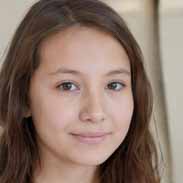Chapter 10 Communicating for Results: A guide for Business and the Professions – Flashcards
Unlock all answers in this set
Unlock answersquestion
Important Elements of Initial Team Construction
answer
Commitment and Preparation
question
Active listening
answer
1) Receive 2) interpret 3)check 4) Repeat 1-3
question
Elements of Commitment
answer
1) Open-minded 2) Involve all personality types
question
Myers-Brigg Personality Types
answer
Extroverts/Introverts, Agreeable, Conscientious, Emotionally Stable, Open to New Experiences
question
Task Roles
answer
Give/Seek information, Give/seek opinions, Elaborate, Energize, Review, Record
question
Maintenance Roles
answer
Encourage, Harmonize, Relieve Tension, Gatekeeper
question
Two Types of Roles
answer
Task and Maintenance
question
Dysfunctional Behaviors
answer
Blocking, Aggression, Storytelling, Recognition seeking, Dominating, confessing - drama/anxiety, special interests outside of tasks, distracting, withdrawing
question
Dealing With Behaviors
answer
Plan opening and meeting flow, seat people strategically, avoid making eye contact with trouble maker, assign tasks, assign speaking order, stop behavior, give praise for positive behaviors
question
Leadership can result in
answer
Goodness or evil
question
Three dynamics of leadership at work at same time
answer
Context, Leader, Follower
question
Two Exemplary Leader Characteristics
answer
Competence and Honesty
question
Downside of high-performing teams
answer
Limited Forgiveness, Burn Out
question
Leadership Communication Skills
answer
Commitment/participation, active listening, open-mindedness, flexibility
question
Meeting Leadership
answer
Be committed, Be prepared, support majority opinion
question
Extrovert
answer
Comfortable, Sociable, talkative
question
Agreeable
answer
Focused, Cooperative, trusting
question
Emotional Stability
answer
Security of team member, calm, enthusiastic
question
Conscientiousness
answer
Focused, responsible, dependable
question
Open to Experience
answer
Broad range of interests, creative, imaginative
question
Open-mindedness
answer
Listen, Respect, Entire group benefit
question
Leadership Theories
answer
Behavioral, Situational, Recent
question
Behavior Theories
answer
Trait, Function, Three-dimension
question
Trait Theory
answer
Leaders are born. Genetic.
question
Function Theory
answer
Determined by task and maintenance functions. Certain functions must be performed to be successful.
question
Three-dimension Theory
answer
Autocratic, Democratic, laissez-faire
question
Autocratic
answer
Absolute in power or authority
question
Democratic
answer
A leadership style which includes employees in decision-making
question
Laissez-faire
answer
Not interfering
question
Situational contingency
answer
Fiedler. Function of power, task and relationship.
question
Situational Leadership
answer
Hersey/Blanchard. Change style to fit situation. delegating, participating, selling, telling.
question
Path-Goal
answer
House. Depends on leaders ability and groups needs.
question
Normative Decision
answer
Decision tree approach. Step-by-step guide.
question
Transformational
answer
Charismatic from the heart
question
Servant leadership
answer
leadership that begins with service to others.
question
Leadership
answer
Use of power to promote the goal accomplishment and maintenance of the group.



